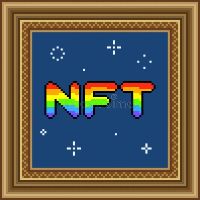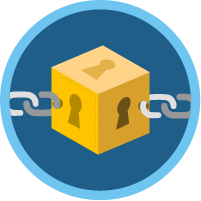 Crypto Mining for Attorneys is yet another installment in a series to help busy executives take a dive into the new world of crypto in bite-sized chunks. The purpose of this week's entry is to give the reader a basic understanding of Crypto Mining, how it is currently being implemented, and where thought leaders project it going. Here are this edition's nuggets for Crypto Mining for Attorneys.
Crypto Mining for Attorneys is yet another installment in a series to help busy executives take a dive into the new world of crypto in bite-sized chunks. The purpose of this week's entry is to give the reader a basic understanding of Crypto Mining, how it is currently being implemented, and where thought leaders project it going. Here are this edition's nuggets for Crypto Mining for Attorneys.
- The process of mining is solving math problems to confirm transactions on the blockchain. This work is rewarded in small amounts of digital currency. For example, my basic, run-of-the-mill work PC mines during off-hours and nets me a meager $7/month in BTC.
- Crypto mining was invented to give users incentive to host transactions on their own computers. While mining, the user is volunteering their computer as a ‘node’, or ‘link’. in the blockchain.
- It is the redundancy of this process that ensures the unhackability of a decentralized blockchain. Many iterations of the same transaction are confirmed on so many independent machines the information then excludes errors and attempted fraud.
- The more computing power one has, the more one can mine. Some people use their personal computers and reap very small rewards (better than nothing), and some build farms of mining rigs and reap thousands of dollars a month. A $15,000 BTC mining rig could net $1K per month. Some folks build entire farms of these.
- Video cards, or GPU’s, have skyrocketed in price since the crypto mining goldrush began. Sort of the opposite of business computing, a mining rig needs very little RAM, and CPU power, but a lot of video memory. This has affected the gaming industry greatly because miners will often pay much more for these cards than gamers.
- Crypto mining uses so much electricity in its current state, it is not considered environmentally friendly, nor do electrical bills often justify mining. The current state of mining is called Proof of Work, where miners all work at the same time and, the more work, the more transaction verification. This creates more redundancy than needed and more coin doled out for unneeded work.
- The next generation of mining, called Proof of Stake, promises to be much more efficient. This is where miners wait in line to confirm transactions in an orderly fashion as needed.
- Etherium 2.0 (coming very soon) promises to be the gold standard for Proof of Stake and, hence, the new standard for crypto going forward. I believe this is true and am banking on it.
Other articles in this series include: Web3 for Attorneys, Blockchain for Attorneys, Crypto Wallets for Attorneys, NFT for Attorneys, Crypto Mining for Attorneys, and Metaverse for Attorneys.

 Crypto Wallets for Attorneys is yet another installment in a series to
Crypto Wallets for Attorneys is yet another installment in a series to 

 Blockchain for Attorneys is yet another installment in a series to help busy executives take a dive into the new world of crypto. The purpose of this week's entry is to give the reader a basic understanding of blockchain technology, how it is currently being used, and where thought leaders project it going.
Blockchain for Attorneys is yet another installment in a series to help busy executives take a dive into the new world of crypto. The purpose of this week's entry is to give the reader a basic understanding of blockchain technology, how it is currently being used, and where thought leaders project it going.